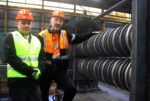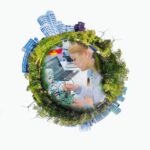Gold Coast training academy established to support luxury marine industry
The academy at the Gold Coast City Marina and Shipyard (GCCM) will begin turning out an in-demand pipeline of skilled marine trades workers to fill labour shortages across the $80-billion industry, from marine labourers, to trade assistants, trimmers, fabricators, painters, electricians, carpenters, shipwrights and plumbers. GCCM CEO Trenton Gay said the marine sector had grown at an unprecedented rate, offering a massive spread of sophisticated and innovative job opportunities. “The marine industry is fast-paced, multi-layered and ever-evolving so for those seeking out new career paths, the academy is an ideal way to get the right advice and appropriate training,” Gay said. “Australia is being recognised internationally now for the quality of marine trades we offer, so it is important that we enhance the flow of job opportunities and talent within the industry.” Close to 40 superyachts have been brought into Australia in the past year, compared to around 10 superyachts in a “normal” year, with the Gold Coast and Queensland a key gateway to the influx. Among the lavishly appointed arrivals was 68-metre Lady Christine superyacht, worth $82 million, that arrived at the Gold Coast for a multi-million-dollar, six-month facelift. Owned by British billionaire, Lord Irvine Laidlaw who is a former member of the House of Lords and founder of the Institute for International Research, the craft was also used by George Clooney and Julia Roberts for their latest blockbuster, Ticket to Paradise, being filmed on the Gold Coast and around Queensland. The GCCM is part of the 250-hectare Gold Coast Marine Precinct, the largest refit and repair yard in the Southern Hemisphere. More than 90 businesses operate from the precinct, covering all aspects of marine refit, maintenance, and construction for vessels. Local employment and training specialists, DGT Employment and Training, will head the GCCM Marine Trades Academy program to deliver tailored support […]










